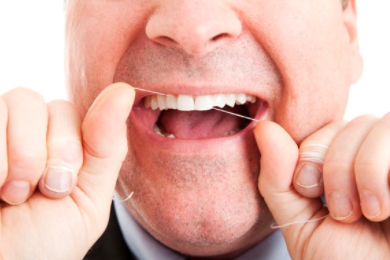
At the office of Dr. Steve C. Davis, we're proud to provide world-class dental care to patients throughout the greater Montgomery, AL area. We strive to be a resource for dental health beyond just providing periodontal treatments, and we're always here to answer any questions our patients may have. If you've ever noticed your gums bleeding after brushing or flossing your teeth, you may be worried, and you're likely wondering what's going on. So what's happening when your gums bleed after brushing or flossing? Moreover, is it normal?
What Causes Bleeding Gums?
If you notice your gums bleed after brushing or flossing, it's generally a bad sign. Usually, gums bleed when they're inflamed due to dental problems like bacterial buildup in the mouth or gingivitis, the first stage of gum disease. The conditions cause the gums to become inflamed, making them swollen, red, and more likely to bleed when disturbed. However, bleeding gums aren't necessarily a major cause for alarm.
If you notice your gums bleeding slightly after flossing, take this as a sign that you need to be more diligent with oral hygiene. Ideally, you should schedule an appointment for an in-office teeth cleaning with your dentist so they can assess the situation and give your teeth a deep clean. Then, take care to be especially consistent with brushing and flossing. After a week or so, your gums should return to normal and stop bleeding.
If your gums continue to bleed or the bleeding gets worse, however, contact us right away. This could be a sign of a different, more serious problem, and we'll need to perform a dental examination to determine what's going on.
Schedule a Consultation with Your Montgomery Dentist
Light bleeding after flossing isn't anything major to worry about, but if the problem persists, it's best to have jus check things out. We'll determine if there are any other underlying dental diseases or conditions that might be causing the bleeding, and we'll work with you to develop a treatment plan to solve them. Ready to get started? We'd love to hear from you – just reach out to us at our contact page.